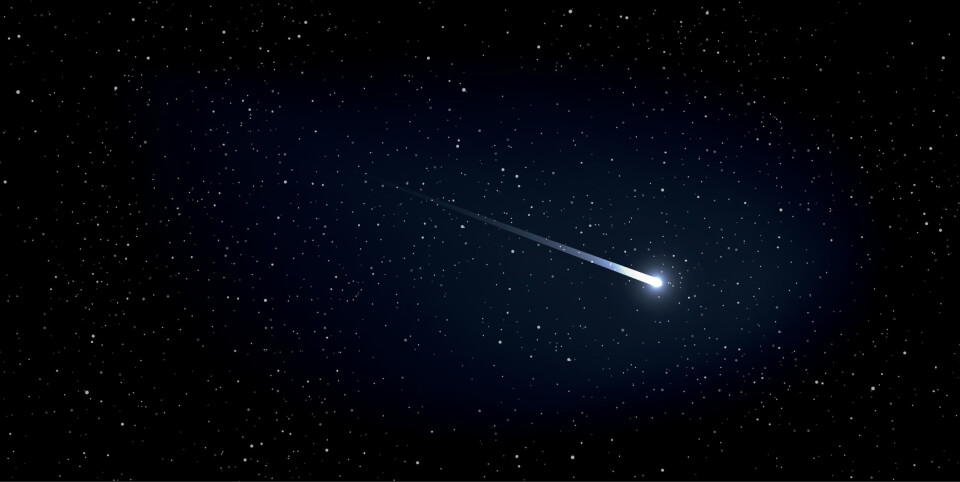-
La Voie Bleue: European Cycle Route of the Year is in France
700km bike path linking Luxembourg and Lyon has been crowned winner of the 2026 title
-
Before and after: Garonne river floods in south-west France
Satellite images show extent of flooding from back-to-back storms in February
-
Home insurance increases expected in France after floods
Compensation costs for the recent storms and flooding across the west and south-west is estimated to be in the billions of euros
Woman struck by 'meteorite' as she sat on her terrace in east France
The rock bounced off the roof of her house and hit her in the chest

Updated: July 19 10:16 to clarify that the nature of the stone has been contested
A woman from a village in Alsace in east France has told how she was hit by what was reported to have been a meteorite as she sat on her terrace – an incredibly rare event.
Just before, the woman and a friend had heard a loud “boom” from the roof of the house as they sat outside at 4:00 on July 6, she told her local paper Dernière Nouvelles d’Alsace.
She said the stone bounced off the roof and struck her in the chest, leaving a bruise over her ribs.
Her first thought was that it was an animal, before she realised what had happened.
The woman, from Schirmeck, later had the stone checked out by a French geologist, Thierry Rebmann, who reportedly had no doubt as to it being a meteorite.
An astronomically rare occurrence
“Finding a meteor is already uncommon, but to be in direct contact and have it fall on you, that is astronomically rare,” Dr Rebmann was reported as saying by France Bleu Alsace, part of the French state's local media network.“We haven’t seen that in decades in this region.”
In fact, according to The Meteoritical Society’s database, only five meteorites have landed in France in the 21st century, with the last one in 2015 weighing barely 3.12 grams.
Dr Rebmann had identified the object on the woman’s request, saying that it resembled a volcanic rock.
Such objects are usually burnt up as they cross the Earth’s atmosphere, he added – which is what is often referred to as a shooting star. However, in this case, there was a little material left, around 50g in weight.
Read also: ‘Enchanted’, ‘amazing’: Your memories of the Perseids shooting stars
According to Dr Rebmann, the meteorite was not rare in itself and did not consist of rare materials, however, he said it is very rare to be struck by one.
He has now recommended that the rock undergoes in-depth analysis by a planetary physics institute to determine its origins. “Its mineralogical composition can give us an idea about where it may have come from,” he said.
Dr Rebmann lists in his CV a doctorate in geology and a particular expertise in areas including minerology and petrography (study of rocks).
The Connexion notes, however, that several other experts have in recent days contested Dr Rebmann's view that the stone was a meteorite.
Sylvain Bouley, co-founder of meteorite observation group Vigie Ciel and a professor at Paris-Saclay University specialising in meteorites, told The Connexion that 99% of meteorites have a 'glassy, smooth' surface due to the high speed and hot temperatures at which they enter the atmosphere.
He said that did not appear to have been the case in this example, as Dr Rebmann described the rock as having a ‘volcanic’ appearance, which would give a "bubbly" surface (an example of a meteorite is shown in this picture from Normandy this year).
Prof Boulay added that it is "easy to be fooled". “Meteorites are such a rare occurrence that it takes a lot of experience for you to identify them without a thorough analysis,” he said.
He also said while he did not mean to cast doubt on Dr Rebamann's geological knowledge, Dr Rebamann was not specialist in meteorites.
Related articles
Watch: ‘Shooting star’ meteor lights up Paris and Rouen skies
























